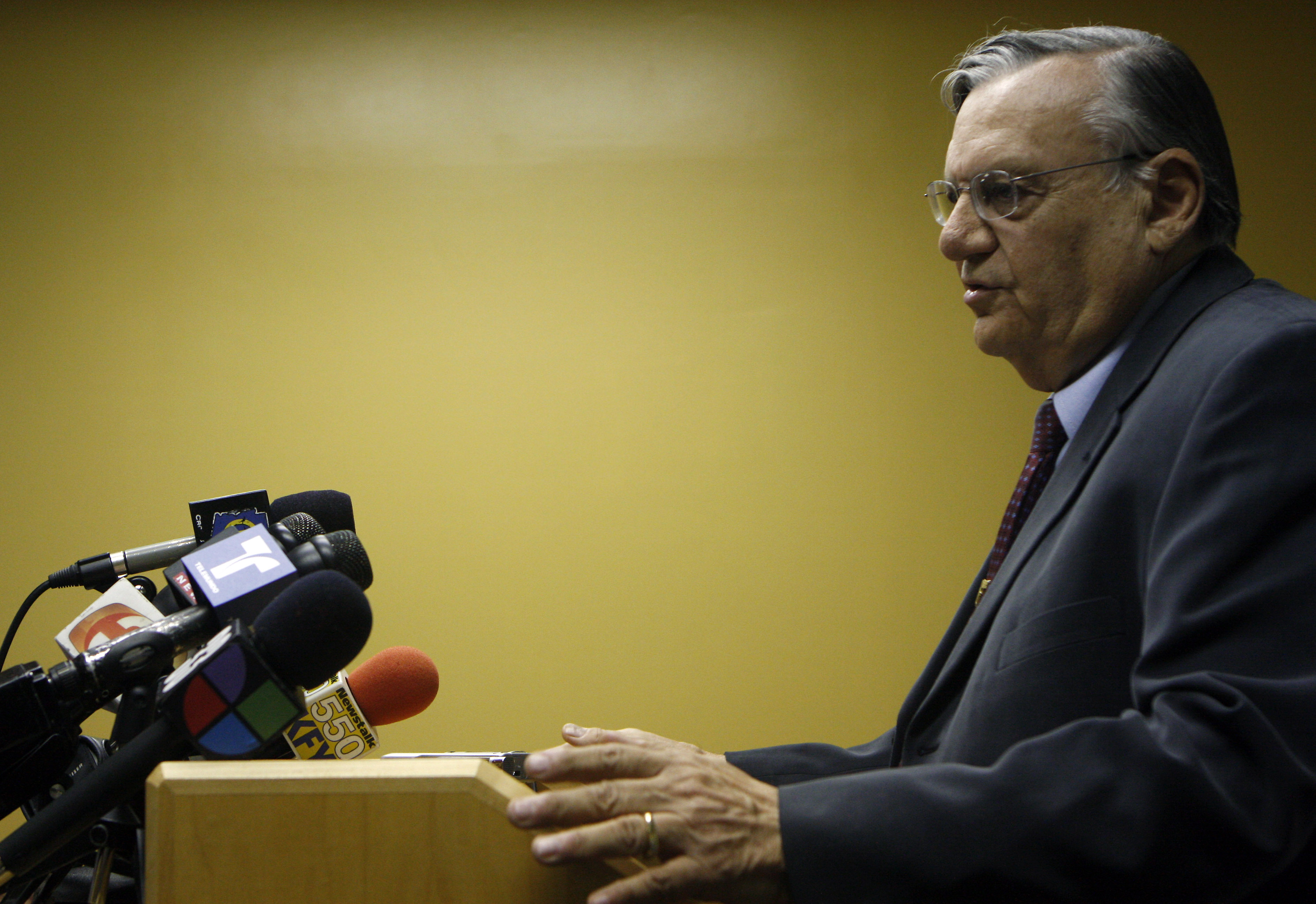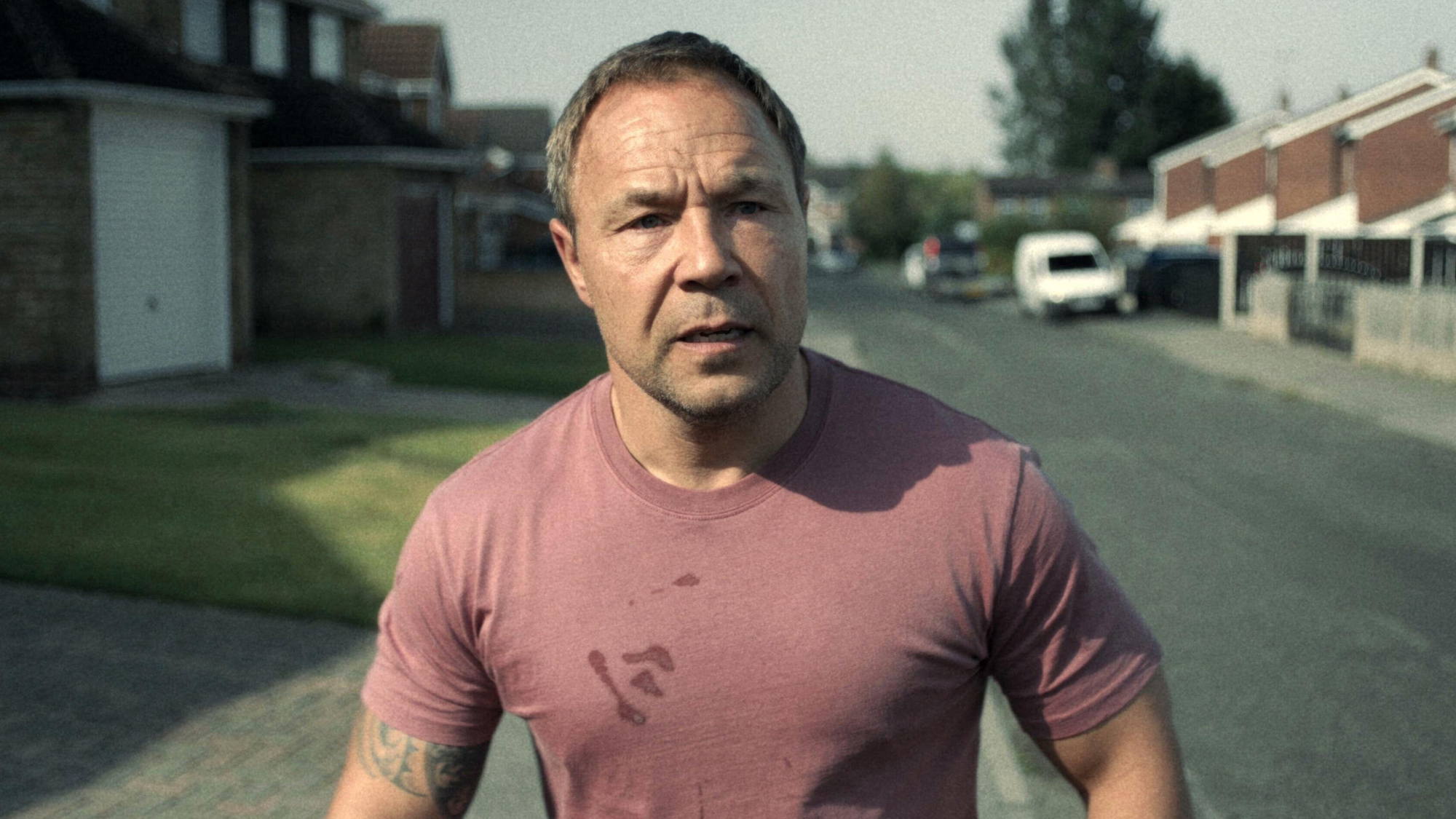The disturbing lessons of Trump's shameful Arpaio pardon
The president's decision to issue his first pardon to a man who made his reputation through race-baiting and contempt for legal restraints and basic human decency tells us a lot about Trump


During his very loosely hinged extemporaneous remarks in Phoenix on Tuesday, President Trump strongly hinted that he would pardon the infamous former Maricopa County Sheriff Joe Arpaio. On Friday evening, with a frightening hurricane descending on Texas, Trump made it official. The decision to issue his first pardon to a public official who made his reputation, such as it is, through race-baiting and a contempt for both legal restraints and basic human decency tells us a lot about Trump — and none of it is good.
It is highly relevant that Trump and Arpaio first became allies while Trump was rising to prominence within the Republican Party by pushing the racist conspiracy theory that Barack Obama was not born in the United States. The Arizona sheriff actually launched a farcical investigation into Obama's birth certificate, wasting taxpayer money to build his cred with his resentful white supporters. That Arpaio and Trump would become mutual admirers was inevitable.
It should go without saying that Arpaio is a terrible candidate for a pardon. If you have any doubts, read this chilling 2009 profile of Arpaio by William Finnegan in The New Yorker. Arpaio's first claim to local fame was to make the conditions of imprisonment for inmates under his jurisdiction as inhumane as possible — housing thousands of people in tents next to cites like dumps and waste disposal plants in the brutal Arizona heat. He fed inmates for 30 cents a meal, two meals a day, and then made the Food Network one of three channels available to prisoners. He put many people who were being held for trial and had not been convicted of any crime to work on chain gangs. Under his watch, guards were so consistently cruel to inmates that the county had amassed more than $40 million in civil damages from lawsuits. And he also engaged in egregious racial profiling when detaining people suspected of being illegal immigrants.
The Week
Escape your echo chamber. Get the facts behind the news, plus analysis from multiple perspectives.

Sign up for The Week's Free Newsletters
From our morning news briefing to a weekly Good News Newsletter, get the best of The Week delivered directly to your inbox.
From our morning news briefing to a weekly Good News Newsletter, get the best of The Week delivered directly to your inbox.
Arpaio's focus on abusing prisoners and arbitrarily detaining people of Latin American descent also made his "tough on crime" reputation grossly misleading. The resources wasted on his cruel publicity stunts took money away from law enforcement, slowing response times and leading to (among other problems) hundreds of botched or perfunctory sex crimes investigations. He did, however, find the time to file frivolous charges against two journalists who were looking into his suspicious property dealings, leading to another huge legal settlement for Maricopa County's taxpayers to pay off.
So of course it's completely logical that Trump would be a fan of Sherrif Joe. As The New Yorker's Margaret Talbot puts it, Arpaio "represents in miniature what the president would like to be more maximally — a successful American authoritarian." Plus, exploiting and fomenting resentments against racial minorities is central to both men's political appeal.
The crime that Arpaio was convicted for exemplifies his revolting career. In 2011, a federal judge found that Arpaio's detentions of people suspected of being illegal immigrants and nothing else were unconstitutional. Arpaio refused to comply, continuing to violate the Fourth and Fourteenth Amendment rights of numerous "suspects." Finally, earlier this year he was found to have been in contempt of court for refusing to comply with a judicial order.
Pardoning Arpaio under these circumstances is a gross affront to the principle of the rule of law. Arpaio flagrantly violated explicit constitutional rights, and then violated judicial orders to stop. To allow him to go unpunished is to celebrate the arbitrary use of state violence and to show contempt for the legal restraints public officials are supposed to be constrained by. As former Solicitor General Walter Dellinger tweeted, when Trump says that Arpaio was convicted for "just doing his job," this means that according to Trump, Arpaio's job "was violating a federal court order," and his pardon is therefore "an assault on law itself."
A free daily email with the biggest news stories of the day – and the best features from TheWeek.com
Unfortunately, the presidential pardon power is unreviewable. Short of impeaching and removing Trump, there is no remedy for this disgraceful pardon. Instead, it is yet another hard lesson of the dangers inherent in giving the awesome powers of the presidency to a man who is thoroughly unfit for office in any respect.
Scott Lemieux is a professor of political science at the College of Saint Rose in Albany, N.Y., with a focus on the Supreme Court and constitutional law. He is a frequent contributor to the American Prospect and blogs for Lawyers, Guns and Money.
-
 7 bars with comforting cocktails and great hospitality
7 bars with comforting cocktails and great hospitalitythe week recommends Winter is a fine time for going out and drinking up
-
 7 recipes that meet you wherever you are during winter
7 recipes that meet you wherever you are during winterthe week recommends Low-key January and decadent holiday eating are all accounted for
-
 Nine best TV shows of the year
Nine best TV shows of the yearThe Week Recommends From Adolescence to Amandaland
-
 Bari Weiss’ ‘60 Minutes’ scandal is about more than one report
Bari Weiss’ ‘60 Minutes’ scandal is about more than one reportIN THE SPOTLIGHT By blocking an approved segment on a controversial prison holding US deportees in El Salvador, the editor-in-chief of CBS News has become the main story
-
 Has Zohran Mamdani shown the Democrats how to win again?
Has Zohran Mamdani shown the Democrats how to win again?Today’s Big Question New York City mayoral election touted as victory for left-wing populists but moderate centrist wins elsewhere present more complex path for Democratic Party
-
 Millions turn out for anti-Trump ‘No Kings’ rallies
Millions turn out for anti-Trump ‘No Kings’ ralliesSpeed Read An estimated 7 million people participated, 2 million more than at the first ‘No Kings’ protest in June
-
 Ghislaine Maxwell: angling for a Trump pardon
Ghislaine Maxwell: angling for a Trump pardonTalking Point Convicted sex trafficker's testimony could shed new light on president's links to Jeffrey Epstein
-
 The last words and final moments of 40 presidents
The last words and final moments of 40 presidentsThe Explainer Some are eloquent quotes worthy of the holders of the highest office in the nation, and others... aren't
-
 The JFK files: the truth at last?
The JFK files: the truth at last?In The Spotlight More than 64,000 previously classified documents relating the 1963 assassination of John F. Kennedy have been released by the Trump administration
-
 'Seriously, not literally': how should the world take Donald Trump?
'Seriously, not literally': how should the world take Donald Trump?Today's big question White House rhetoric and reality look likely to become increasingly blurred
-
 Will Trump's 'madman' strategy pay off?
Will Trump's 'madman' strategy pay off?Today's Big Question Incoming US president likes to seem unpredictable but, this time round, world leaders could be wise to his playbook
